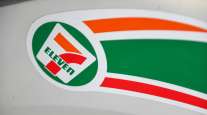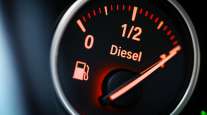Truck Stops See Increase in Diesel Thefts as Fuel Prices Soar
By Dan Leone, Staff Reporter
This story appears in the June 30 print edition of Transport Topics. Click here to subscribe today.
 An executive with Pilot Travel Centers said the number of diesel fuel thefts has soared this year.
An executive with Pilot Travel Centers said the number of diesel fuel thefts has soared this year.
With prices at more than $4 a gallon, “there have definitely been a lot more incidences . . . of diesel fuel thefts this year,” said Ken Parent, senior vice president of operations.
Pilot, Knoxville, Tenn., has not tallied the total amount of diesel fuel it has lost because of theft, but Parent estimated that “if we had one incident per month per store . . . that would cost us $200,000 to $250,000 [a year, and] my gut tells me that in the first part of the year, our incident rate was definitely higher than that.”
Pilot operates about 300 travel centers across the country.
NATSO, formerly the National Association of Truck Stop Owners, also has noted the increase. “It appears as though [diesel theft] is a greater problem than it was in the past,” said Mindy Long, NATSO’s vice president of public affairs.
The most common type of theft involves breaking into a pump and tampering with a device that measures fuel dispensation, Parent said.
Such tampering renders the pump incapable of alerting service station personnel that any fuel has left underground storage tanks, allowing thieves to fill up their vehicles at the retailer’s expense, said Parent.
A metal covering is enough to protect a fuel pump’s sensitive inner workings, but to adequately protect all its pumps, Pilot would have to spend “in the range of $300,000 to $400,000” a year, Parent said.
Pilot now has stepped up patrols of its parking lots and diesel islands to catch thieves in the act.
In parts of the country considered “high-theft areas” for Pilot, the company has instructed service center attendants to collect an up-front deposit from truckers paying cash for fuel, Parent said. The truckers are required to pay as much as $500 before pumping a single gallon, he added.
Meanwhile, reports of high-tech diesel theft, mostly fuel-card fraud, also have risen.
“T-Chek has seen a rise in the fraud reported between drivers and their companies,” said Brian Hennen, security and fraud manager for T-Chek Systems. “The drivers who have skimmed or sold small gallons in the past and have not been caught are likely becoming more comfortable, which is resulting in higher-gallon attempts.”
Hennen noted that the increase in fraud reports also could be tied to tighter auditing procedures.
Because fleets are looking harder for possible incidences of fuel-card fraud, it could be they are “just identifying [more] suspicious behavior, thereby increasing the overall numbers,” Hennen said.




